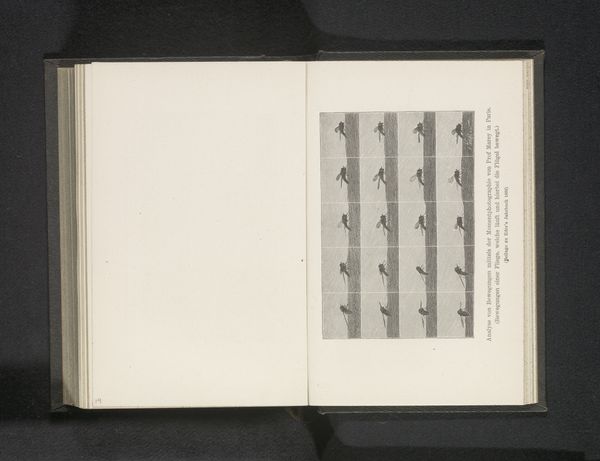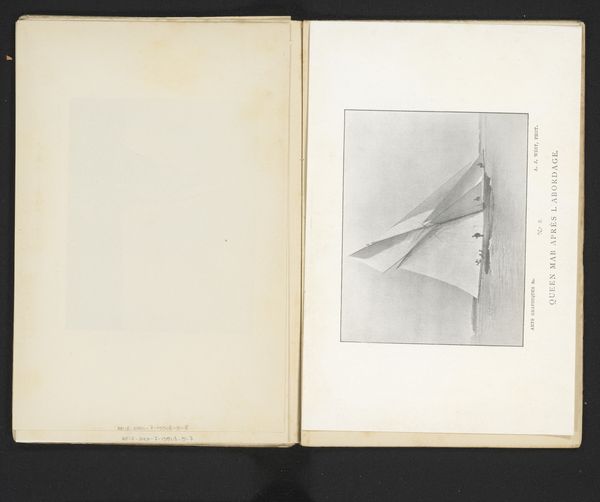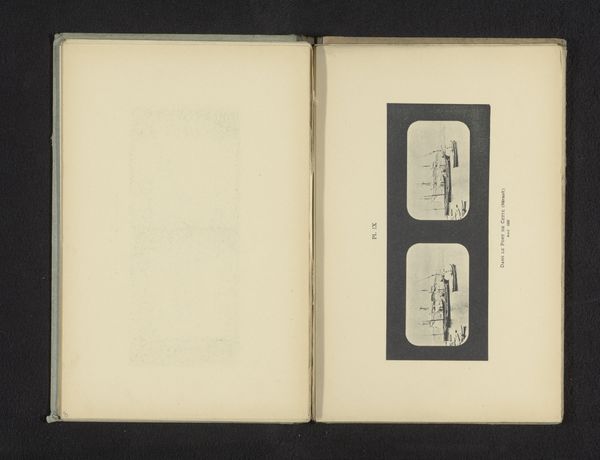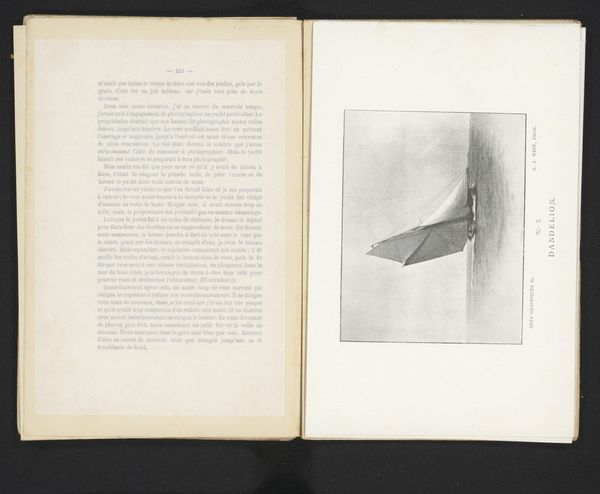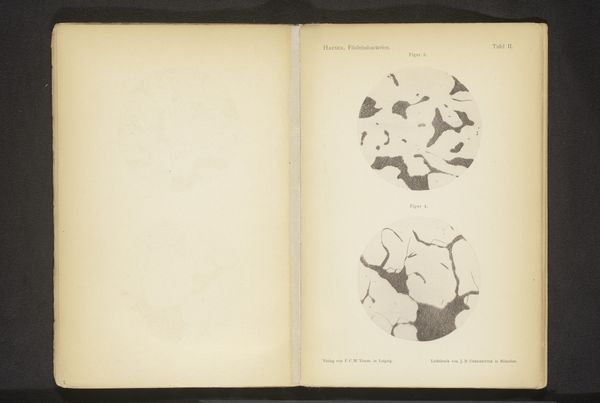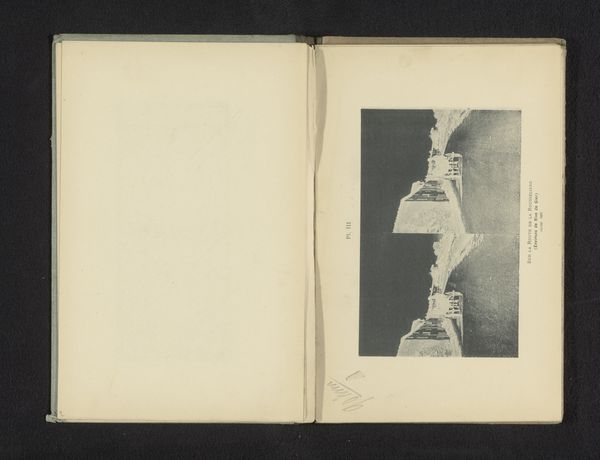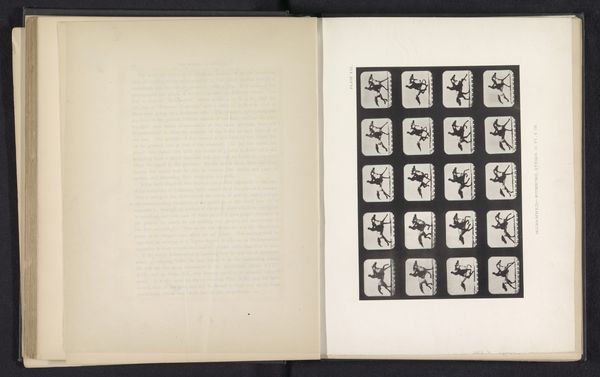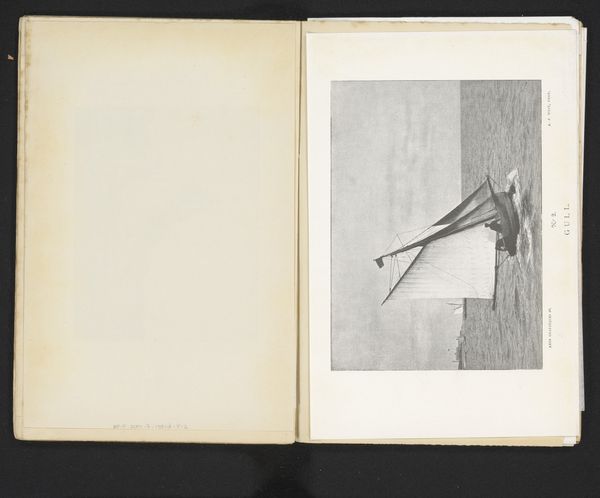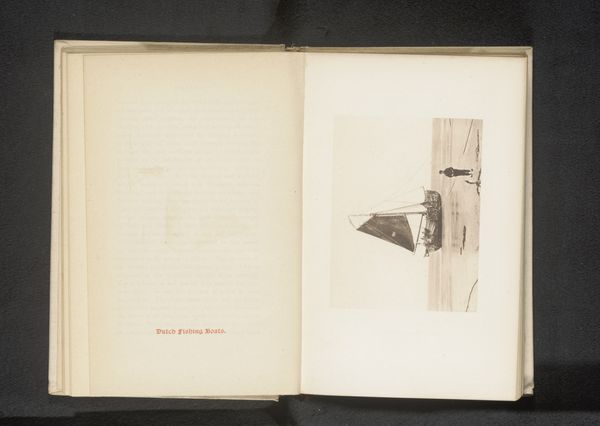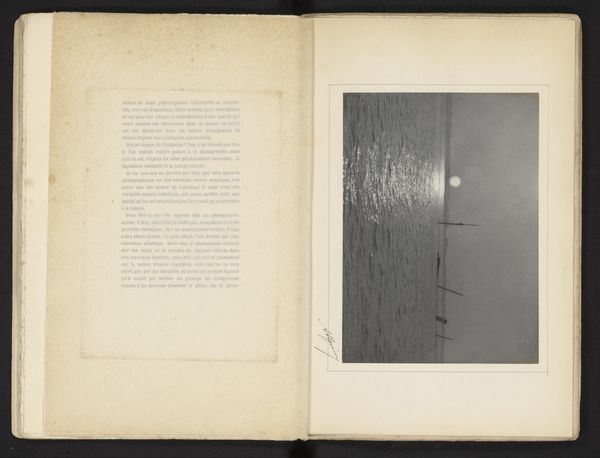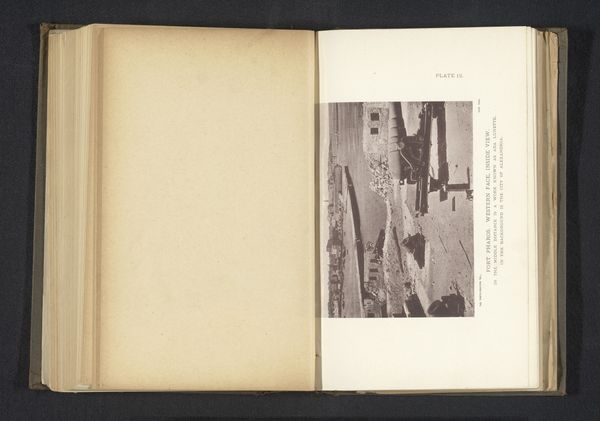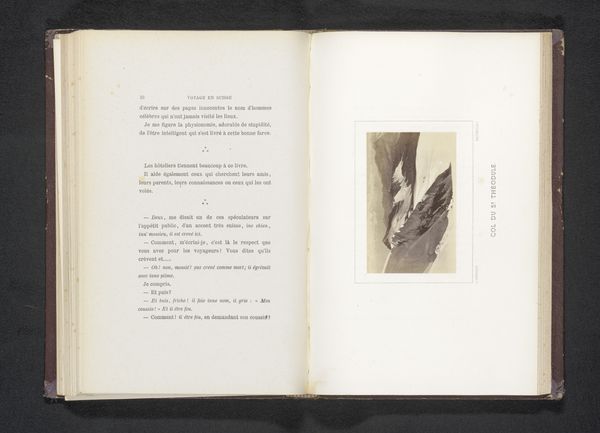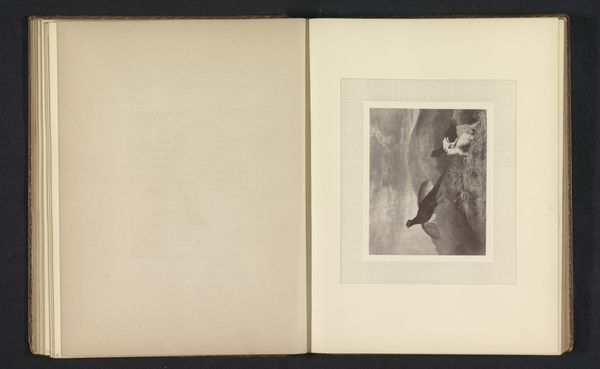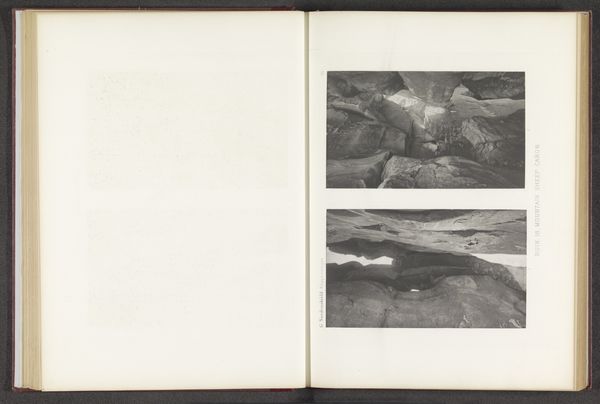
Dimensions: height 65 mm, width 120 mm
Copyright: Rijks Museum: Open Domain
Etienne-Jules Marey made this photographic print, titled "Six examples of the movement of a mosquito," using early photographic techniques. It is printed on paper with a monochrome palette of black and white. The magic here is the way Marey collapsed time, capturing the insect's flight as a series of stroboscopic images. This wasn't fine art photography in the modern sense; it was a scientific pursuit. Marey was interested in understanding animal locomotion, for both practical and intellectual reasons. The tools and methods he employed reveal an intersection of art, science, and technology in the late 19th century, and the industrial processes which made them possible. The result is a ghostly trace of the mosquito's path, a reminder that even the most ephemeral movements can be captured and analyzed. It invites us to consider the relationship between technology, perception, and our understanding of the natural world, and the amount of work involved in the production process.
Comments
No comments
Be the first to comment and join the conversation on the ultimate creative platform.
